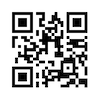Upcoming AAR Sessions on Religion and New Media
The upcoming 2013 American Academy of Religion annual conference at the converntion center in Baltimore, MD has a number of sessions dealing with relevant and interesting themes related to the study of religion and new media. From religion in digital games to the role of technology within African Diaspora Religions those in attendance have a range of enaging panels to pick from. Here are a few relevant panels, which I would highly recommend:
SATURDAY, 23 November 2013
A23-129
Religion, Media, and Culture Group and Sociology of Religion Group
Theme: Media, Religion and Gender: Key Issues and New Challenges
Mia Lövheim, University of Uppsala, Presiding
Saturday - 9:00 AM-11:30 AM
Convention Center-326
In todays mediatized discourse on religion gender emerges as a key aspect highlighting changes in social relations and tensions between cultural values across national and religious contexts. Nevertheless, work on gender has for long remained in the fringes of mainstream research in the field of media, religion and culture. This roundtable brings together some of the authors presented in an edited collection entitled Media, Religion and Gender: Key Issues and New Challenges, published by Routledge in the spring 2013. The participants will, drawing on their various disciplinary perspectives from theology, communication studies, religious studies, and studies of religion and entertainment media, discuss how a focus on gender can highlight emerging transformations and key issues in current research as well as initiate a critical debate about challenges that calls for attention in future research on the interplay between religion, media and culture.
Panelists:
Diane Winston, University of Southern California
Joyce Smith, University of Toronto
Stewart M. Hoover, University of Colorado
Curtis Coats, Millsaps College
Mary E. Hess, Luther Seminary
A23-212
African Diaspora Religions Group
Theme: Technology, Identity, and "Authenticity" in African Diaspora Religions
Maha Marouan, University of Alabama, Presiding
Saturday - 1:00 PM-3:30 PM
Hilton Baltimore-Key 9
This session will address the following questions: How is the rapid expansion of African diaspora religions through technology — internet sites, blogs, YouTube, etc. — changing the racial and geographic composition of adherents? To what extent is this participation in “virtual religion” through online forums and communities instead of flesh-and-blood houses of worship affecting the issue of "authenticity" of religious practice and rituals? How does religious art and ritual become translated/communicated through online media?
Martin Tsang, Florida International University
Virtual Ashe: The Cyber Cartographies of Afro-Cuban Orisha Worship
Funlayo Easter Wood, Harvard University
Cyber Spirits, Digital Ghosts: Diasporic Religious Identity in the Age of Collaborative Consumption
Genevieve Nrenzah, University of Bayreuth
Kofi oo Kofi: Building on the Modernity and Internationalization of Neoindigenous Religions in Ghana
Lisanne Norman, Harvard University
“Elegba Friended Me on Facebook”: African American Yoruba Presence and Participation in Online Orisha Communities
Responding:
Joseph M. Murphy, Georgetown University
A23-302
Public Understanding of Religion and Issues of Religious Pluralism
Public Understanding of Religion Committee and Religion, Media, and Culture Group
Theme: Making (the Study of) Religion Online: New Media and the Study of Religion
Kathryn Reklis, Fordham University, Presiding
Saturday - 4:00 PM-6:30 PM
Convention Center-329
Over the past several years, there has been a proliferation of online journals and collaborative endeavors devoted to reporting and analyzing proliferating religious presences in the public sphere. In addition to discussing “real life” religious engagements (be they political, cultural, domestic or ecclesiastical), these sites themselves become spaces that celebrate a plurality of religious voices and perspectives, that challenge the religious/secular dichotomy, and that engage in the broader mapping and creation of “religion” and “spirituality.” As projects undertaken or engaged in by scholars of religion, these sites offer new modes of scholarship, and new audiences, for the study of religion.
Bringing together editors and curators from some of the most successful of these experiments, this panel will explore engagements with new media as a potential horizon in the academic scholarship of religion in terms of content (what is studied/written about), form (how it is studied/written), and audience (for whom it is studied/written).
Panelists:
Kathryn Lofton, Yale University
Paul Brandeis Raushenbush, The Huffington Post Media Group, New York, NY
Jonathan VanAntwerpen, Social Science Research Council, Brooklyn, NY
Jeffrey Sharlet, New York University
Business Meeting:
Sarah McFarland Taylor, Northwestern University
Jenna Supp-Montgomerie, Quest University Canada
SUNDAY, 23 November 2013
A24-136
Religion, Media, and Culture Group
Theme: Reflections on Playing with Religion in Digital Gaming
Heidi Ann Campbell, Texas A and M University, Presiding
Sunday - 9:00 AM-11:30 AM
Convention Center-338
This panel explores the intersection between digital gaming, media and religious studies by bringing together cutting-edge research that consider how religious games are constructed ideologically, the ways religion is manifest in the gaming genre and how the gaming enterprise can be seen as doing important religious and cultural work through serving a meaning-making role for players. Profiling key works from the forthcoming Playing with Religion in Digital Gaming (Indiana Univ. Press, late 2013) panelist map the current study of religion within digital games and gaming environments, providing a theoretical framework for this growing area of scholarship. It demonstrates that work done in religious studies related to digital gaming offers critical insights into how gaming becomes a key arena for investigating popular framings of religious narratives and existential meaning, and can open up a greater understanding of the cultural and religious impact of gaming on contemporary society.
Xenia Zeiler, University of Bremen
Representation Versus Simulation: The Global Mediatization of Hinduism in Hanuman: Boy Warrior
Rabia Gregory, University of Missouri
Citing the Medieval: Using Religion as World Building Infrastructure in Fantasy MMORPGs
Shanny Luft, University of Wisconsin, Stevens Point
Hardcore Christian Gamers: Understanding How Religion Shapes Evangelical Play
Rachel Wagner, Ithaca College
The Importance of Playing in Earnest
A24-305
Arts, Film, Literature, Media, Popular Culture, Visual Culture, and Religion Cluster
Theme: The Gothic
Diane Apostolos-Cappadona, Georgetown University, Presiding
Sunday - 5:00 PM-6:30 PM
Convention Center-340
From medieval architecture to teen romance novels, from monster movies to clothing styles, "the Gothic" has been an enduring trope in modern Western cultures. But can the same label be affixed to such diverse media as painting and television, and from twelfth century French buildings to twenty-first century wardrobes? Is it an inherently religious term, or how has it diverged from initially sacred interests? This session explores such questions and concerns. Presentations will cover iterations of the Gothic in European and U.S. literature, revival architecture and Protestantism, Frankenstein films, the work of H.P. Lovecraft, video games, and the identity formations of contemporary teen subcultures. The aim is not to find a definitive version of the Gothic, but to explore and challenge assumptions and to cross borders between media and culture, querying something deeper about human desires for transcendence.
Panelists:
David Bains, Samford University
Rachel Wagner, Ithaca College
Erik Davis, Rice University
Sarah M. Pike, California State University, Chico
Responding:
Gary M. Laderman, Emory University
MONDAY, 25 November 2013
A25-132
Religion and Popular Culture Group
Theme: Material Interactions: Case Studies in the Cultural Production of Religious Difference
Rabia Gregory, University of Missouri, Presiding
Monday - 9:00 AM-11:30 AM
Sheraton Inner Harbor-Harborview II
This paper session examines four different material sources for the cultural production of religious difference: the author, the gun, the mother, and the bible. In representative case studies, the presenters demonstrate how the transcendent operations of popular culture are a means by which to make and distribute a religious distinction. Religious difference is set apart from cultural expression even as it shares its disseminating mechanisms of embodied selves and circulated artifacts. In these cases, immersion journalism is a medium for evangelical authorship, as well as secular reporting and reality television. Public conversations on guns are imbued with a latent apocalyptic vocabulary that renders guns affectively charged discursive objects. Nineteenth-century women missionaries consider mothering a Christian duty that included material practices Native Americans had not yet learned. And new technologies of digital media offer Christian communities the ability to preserve and redefine traditional ways of reading and interpreting Biblical texts.
Timothy Hutchings, Durham University
“It Is with Me Always”: The Bible as Digital Text
Sarah Koenig, Yale University
"Our Peculiarly Responsible Duties as Mothers": Missionary Maternalism and Women’s Material Culture in Nineteenth Century America
Donovan Schaefer, Haverford College
Theses on Guns, Apocalypticism, and American Religion
Elliot Ratzman, Swarthmore College
The Religious Dimensions of Immersion Journalism: From Black Like Me to The Cross in the Closet
A25-205
North American Religions Section
Theme: Religious Change and Technological Mediation in Modern America
Randall Styers, University of North Carolina, Presiding
Monday - 1:00 PM-3:30 PM
Hilton Baltimore-Key 4
According to Jeremy Stolow, religion and technology “mingle promiscuously.” The proposed panel explores this promiscuous mingling in historical perspective, focusing on religious and technological change in nineteenth- and twentieth-century America. Ever-changing technologies—from letterpress to watches to film to the internet—mediated changes in modern American religious structures and practices. Religious people did not simply instrumentalize technologies in service of preexisting religious ideas or intentions. In religious history, technologies have also been agents of change. Such an investigation demands close attention to the materiality of the technological media themselves beyond their representative content. What forms of religious structure, practice, and thought did the materiality of such media enable, facilitate, limit, or generate? A diverse group of panelists explore this question through case studies on electroencephalography, stopwatches, Fordist automobility, wood-engraved visual media, and railroads.
Panelists:
John Modern, Franklin and Marshall College
Brendan Pietsch, Nazarbayev University
Kati Curts, Yale University
Sonia Hazard, Duke University
Pamela Klassen, University of Toronto





